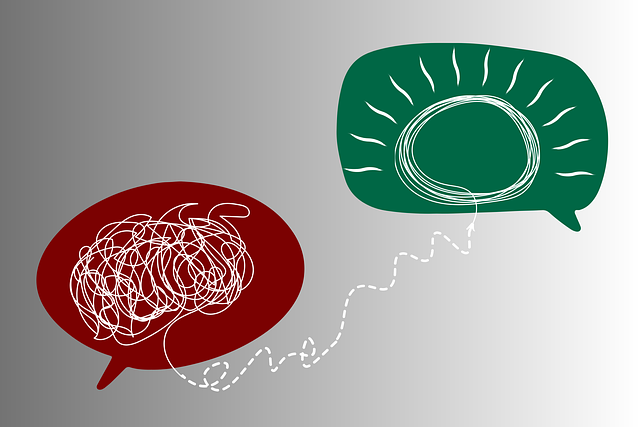Mental wellness is a holistic concept emphasizing emotional, psychological, and social well-being, with self-care as a key component. The Littleton Acceptance and Commitment Therapy (ACT) approach is a modern method promoting acceptance, mindfulness, and aligning actions with personal values for improved mental strength. By incorporating ACT into self-care routines through activities like meditation, journaling, exercise, and quality time with loved ones, individuals can enhance emotional regulation, promote meaningful interactions, and build resilience to navigate life's challenges effectively. Organizations like Stress Management Workshops and Mental Health Education Programs Design play a crucial role in educating people on developing sustainable self-care practices based on ACT principles.
Developing a robust mental wellness self-care routine is essential for overall well-being. This article guides you through understanding mental wellness and its critical role in self-care, with a focus on incorporating Littleton Acceptance and Commitment Therapy (ACT) techniques to foster mindfulness and personal growth. You’ll learn strategies for nurturing a sustainable self-care practice that enhances resilience and promotes a healthier mind. Embrace these practices to revolutionize your mental wellness journey.
- Understanding Mental Wellness and Self-Care
- Incorporating Littleton Acceptance and Commitment Therapy (ACT) into Your Routine
- Nurturing a Sustainable Self-Care Practice
Understanding Mental Wellness and Self-Care

Mental wellness is a holistic concept encompassing our emotional, psychological, and social well-being. It’s about recognizing and valuing our unique mental health landscape, just as we would prioritize physical health. Self-care, an integral aspect of maintaining mental wellness, involves intentional activities that nurture our minds and foster resilience. This could include practices like meditation, journaling, engaging in hobbies, or connecting with loved ones.
In today’s fast-paced world, prioritizing self-care is more crucial than ever. The Littleton Acceptance and Commitment Therapy (ACT) approach emphasizes the importance of acceptance and mindfulness to navigate life’s challenges. It encourages individuals to develop a flexible mindset, embrace their emotions without judgment, and commit to actions that align with personal values. Incorporating these principles into a self-care routine can be transformative, helping folks cultivate mental strength and overall well-being. Additionally, resources like the Mental Wellness Podcast Series Production and Mind Over Matter Principles offer valuable insights and strategies for navigating mental health journeys.
Incorporating Littleton Acceptance and Commitment Therapy (ACT) into Your Routine

Incorporating Littleton Acceptance and Commitment Therapy (ACT) into your self-care routine can significantly enhance mental wellness. ACT focuses on accepting what cannot be changed while committing to actions that align with personal values, promoting a sense of purpose and reducing negative emotions. By learning to observe thoughts without judgment, individuals can cultivate flexibility in their responses to stressors, leading to improved emotional regulation and overall well-being.
This therapy also emphasizes the importance of engaging in meaningful activities that promote growth and fulfillment. Incorporating ACT techniques like mindfulness exercises, value identification, and goal setting into your daily routine can facilitate better stress reduction methods. Moreover, social skills training, a crucial component of ACT, enhances interpersonal relationships, further contributing to a robust mental health framework. Regular risk assessments for mental health professionals are essential in ensuring the safe and effective delivery of these therapeutic practices.
Nurturing a Sustainable Self-Care Practice

Building a sustainable self-care routine is an essential aspect of maintaining good mental health, and Littleton Acceptance and Commitment Therapy (ACT) offers valuable insights in this regard. Self-care isn’t just about occasional treats; it’s a consistent practice that nourishes your mind, body, and soul over the long term. The key lies in identifying activities and habits that bring you joy, reduce stress, and enhance overall well-being. This could include regular exercise, mindfulness practices such as meditation or deep breathing, engaging hobbies, and quality time with loved ones.
By integrating these into your daily or weekly schedule, you create a supportive environment for your mental health. Organizations like Stress Management Workshops and Mental Health Education Programs Design play a crucial role in promoting this awareness by offering resources, workshops, and programs that guide individuals in developing effective self-care routines. Embracing these practices is not just a personal choice but a powerful tool to navigate life’s challenges and cultivate resilience.
Developing a robust mental wellness self-care routine is a transformative journey. By integrating practices like Littleton Acceptance and Commitment Therapy (ACT), individuals can foster resilience and live more fulfilling lives. Nurturing this practice requires consistency and mindfulness, allowing one to navigate life’s challenges with greater clarity and purpose. Embrace self-care as an ongoing process, adapting it to your unique needs, for a healthier and happier you.









